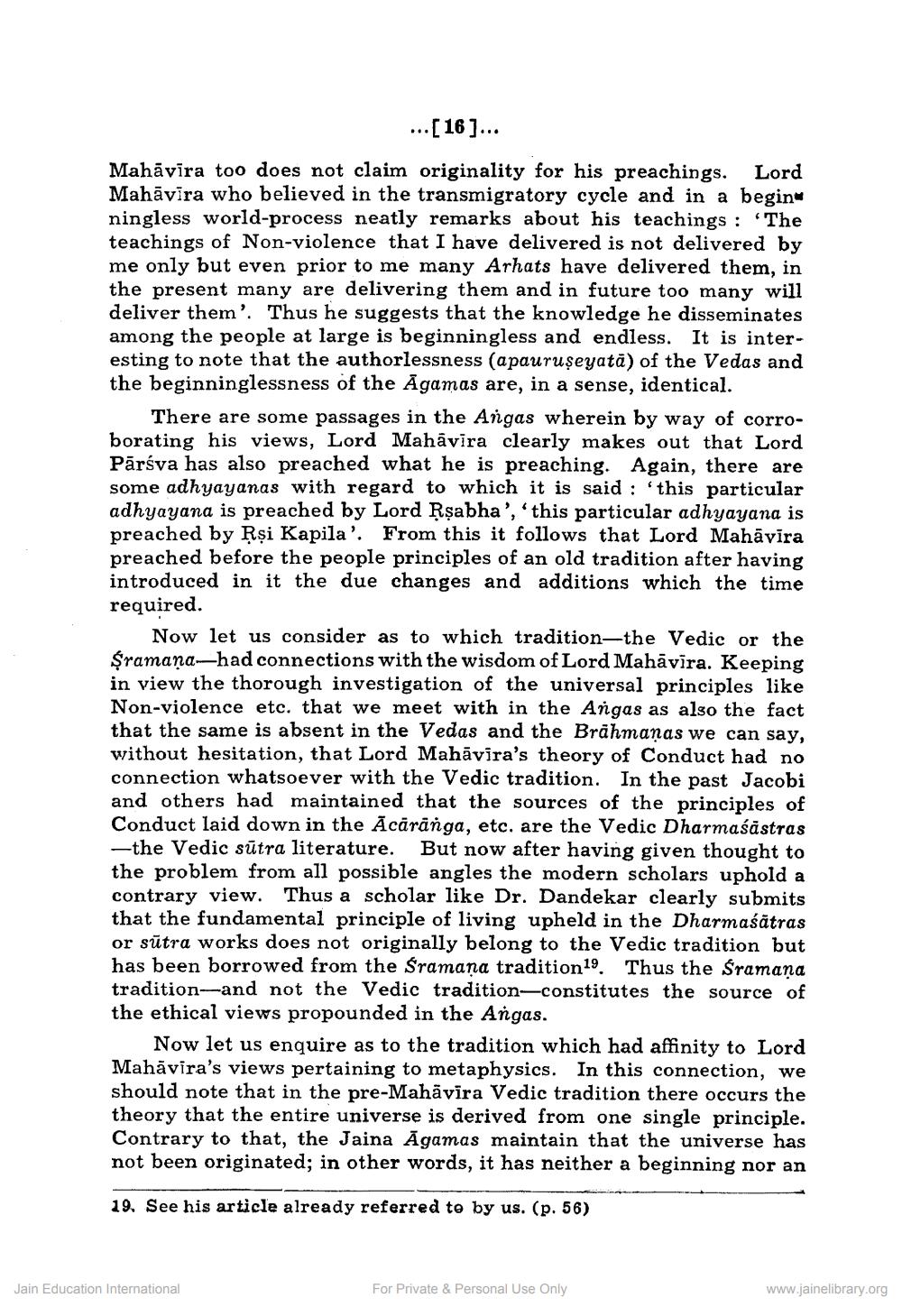________________
... [16]...
Mahāvīra too does not claim originality for his preachings. Lord Mahāvīra who believed in the transmigratory cycle and in a begin ningless world-process neatly remarks about his teachings: 'The teachings of Non-violence that I have delivered is not delivered by me only but even prior to me many Arhats have delivered them, in the present many are delivering them and in future too many will deliver them'. Thus he suggests that the knowledge he disseminates among the people at large is beginningless and endless. It is interesting to note that the authorlessness (apauruşeyata) of the Vedas and the beginninglessness of the Agamas are, in a sense, identical.
There are some passages in the Angas wherein by way of corroborating his views, Lord Mahāvīra clearly makes out that Lord Pārsva has also preached what he is preaching. Again, there are some adhyayanas with regard to which it is said: 'this particular adhyayana is preached by Lord Rṣabha', 'this particular adhyayana is preached by Rși Kapila'. From this it follows that Lord Mahāvīra preached before the people principles of an old tradition after having introduced in it the due changes and additions which the time required.
Now let us consider as to which tradition-the Vedic or the Sramana-had connections with the wisdom of Lord Mahāvīra. Keeping in view the thorough investigation of the universal principles like Non-violence etc. that we meet with in the Angas as also the fact that the same is absent in the Vedas and the Brahmanas we can say, without hesitation, that Lord Mahāvira's theory of Conduct had no connection whatsoever with the Vedic tradition. In the past Jacobi and others had maintained that the sources of the principles of Conduct laid down in the Acaränga, etc. are the Vedic Dharmasastras -the Vedic sutra literature. But now after having given thought to the problem from all possible angles the modern scholars uphold a contrary view. Thus a scholar like Dr. Dandekar clearly submits that the fundamental principle of living upheld in the Dharmaśātras or sutra works does not originally belong to the Vedic tradition but has been borrowed from the Śramana tradition19. Thus the ramana tradition-and not the Vedic tradition-constitutes the source of the ethical views propounded in the Angas.
Now let us enquire as to the tradition which had affinity to Lord Mahavira's views pertaining to metaphysics. In this connection, we should note that in the pre-Mahavira Vedic tradition there occurs the theory that the entire universe is derived from one single principle. Contrary to that, the Jaina Āgamas maintain that the universe has not been originated; in other words, it has neither a beginning nor an
19. See his article already referred to by us. (p. 56)
Jain Education International
For Private & Personal Use Only
www.jainelibrary.org




